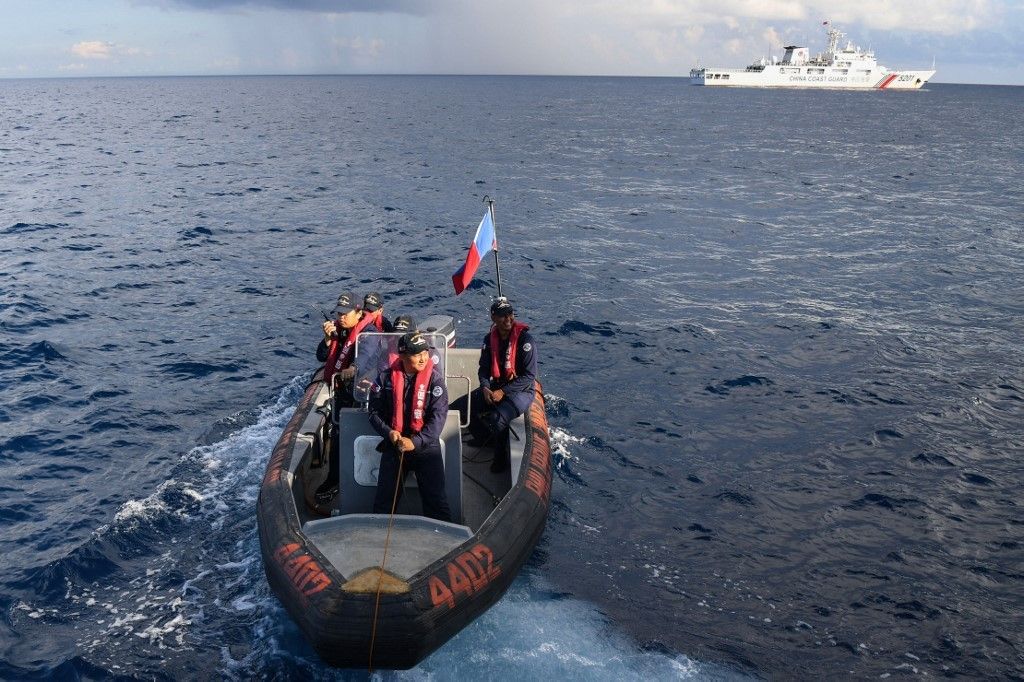US backs Philippines on WPS incident; Australia calls for peace, stability

MANILA, Philippines — Days after the Chinese Coast Guard’s maneuverings in Philippine waters, the United States again backed Manila defending itself against armed attacks while Australia reiterated its call for peace and stability.
Washington noted Beijing’s “continued infringement upon freedom of navigation” in the West Philippine Sea and reiterated that an armed attack against the Philippines would invoke mutual defense commitments under the US-Philippines Mutual Defense Treaty.
“Imagery and video recently published in the media is a stark reminder of PRC harassment and intimidation of Philippine vessels as they undertake routine patrols within their exclusive economic zone,” the US Department of State said in a statement dated April 29.
“We call upon Beijing to desist from its provocative and unsafe conduct,” the US said, adding that it “continues to track and monitor these interactions closely.”
Philippine and Chinese vessels nearly collided on April 23, when CCG vessel No. 5201 went within 50 yards of BRP Malapascua while in waters around Ayungin Shoal. The Department of Foreign Affairs noted that the maneuver blocked the Philippine Coast Guard’s path and “[exposed] the Philippine vessels’ crew to serious danger.”
A similar incident with CCG 5201 and 4202 happened on April 19, when BRP Malapascua was also on its way to Ayungin Shoal.
Canberra noted that the incident against the PCG was “unprofessional and dangerous conduct” in Manila’s own waters.
“Australia reiterates our call for peace, stability and respect for UNCLOS in the South China Sea, a vital international waterway,” Australian Ambassador to the Philippines HK Yu said in a statement on April 30.
China blames the Philippines
The 2016 ruling of the Permanent Court of Arbitration, which Beijing ignores, provides that Ayungin Shoal (Second Thomas Shoal) is part of Manila’s exclusive economic zone and continental shelf since it is within 200 nautical miles of Palawan’s coast.
Ma. Teresita Daza, spokesperson of the DFA, said the CCG’s interference with recent missions in the waters were “totally inconsistent with freedom of navigation.” The Philippines’ focal person for its communication mechanism with China received a call from his counterpart last April 23 at 5:56 p.m. to discuss the incident, the DFA said.
“Our side informed China that it was a routine patrol and that we have every right to carry out such an activity,” Daza said.
But China still pins the blame on the Philippines, claiming that the PCG intruded into Chinese territory without permission and its vessels only upheld its own sovereignty. Foreign Ministry Spokesperson Mao Ning on April 28 further claimed that the incident was “premeditated provocation designed to deliberately create a friction.”
To which Daza said: “Routine patrols in our own waters can neither be premeditated nor provocative. It is a legal right that we exercised and will continue to exercise.”
- Latest
- Trending

































